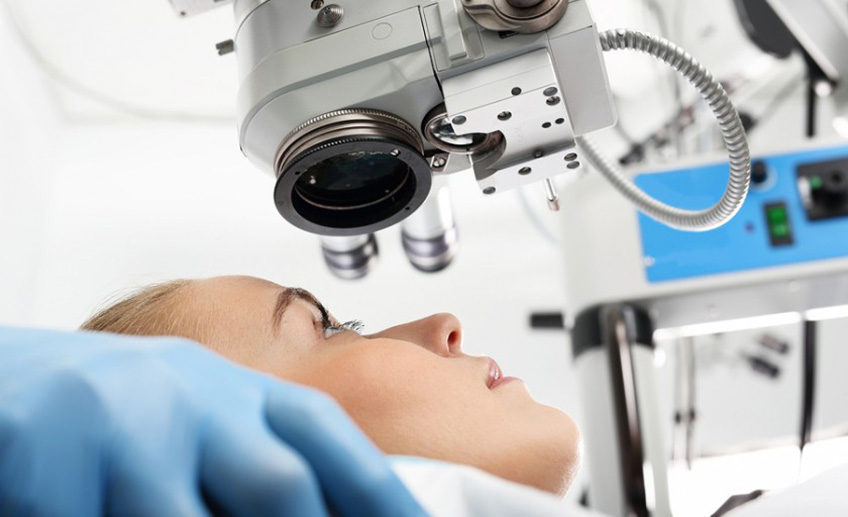There are several modern approaches to corrective eye surgery available ranging from laser reshaping of the eye’s surface in procedures such as LASIK and PRK to surgical insertion of artifical lenses to correct eyesight.
Eye Surgical Associates currently offers the newest and safest type of ocular laser surgery available, Femto-Lasik, or Z-Lasik. There are much fewer risks of complications during the procedure and the flaps are much thinner. This offers a better chance of greater stability to the cornea over time.
The Femto-Lasik laser operates on the principle of photo-disruption with infrared laser energy. The surgeon creates a precise pattern of small, overlapping spaces just under the surface of the cornea. The laser works at extremely fast speeds with pulses of 1 quadrillionth of a second or 1 femtosecond.
These precision guided pulses of laser light break down the corneal tissue at the molecular level each femtosecond, without generating heat or interfering with surrounding tissue. When the laser moves over the eye, it incises a completed flap in the cornea. Once this flap has been created, the surgeon can tilt it up with a specially designed surgical tool. Laser energy is applied underneath to reshape the cornea with an Excimer laser. The flap is replaced and functions as a natural bandage. Femto-Lasik’s main advantage over PRK is there is little or no discomfort immediately after the procedure and vision is usually clear within hours rather than days.
Because your eyes change with age, the type of laser eye surgery or other vision correction you need also may change. Certain approaches to LASIK or other procedures that work well for younger adults, may be inappropriate for older individuals. In some cases, vision correction surgery may be ruled out entirely. Children under age 18 rarely would be considered candidates for laser vision correction because their eyes change too rapidly as their bodies grow and mature. Also, some people have certain condition or diseases that would make them poor candidates for certain vision correction procedures.
Generally speaking, however, people in their 20’s or 30’s with mild to moderate farsightedness, nearsightedness, and/or astigmatism are usually excellent candidates for laser vision correction.

